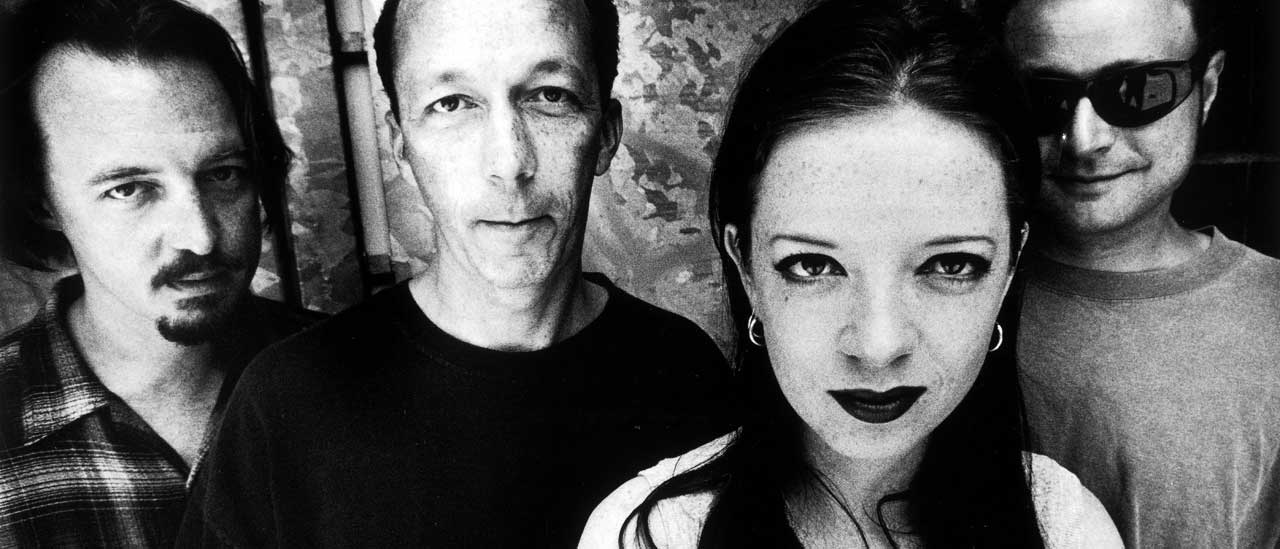An oral history of hair metal
The true story of the birth, rise and fall of hair metal, from the people who lived through it all
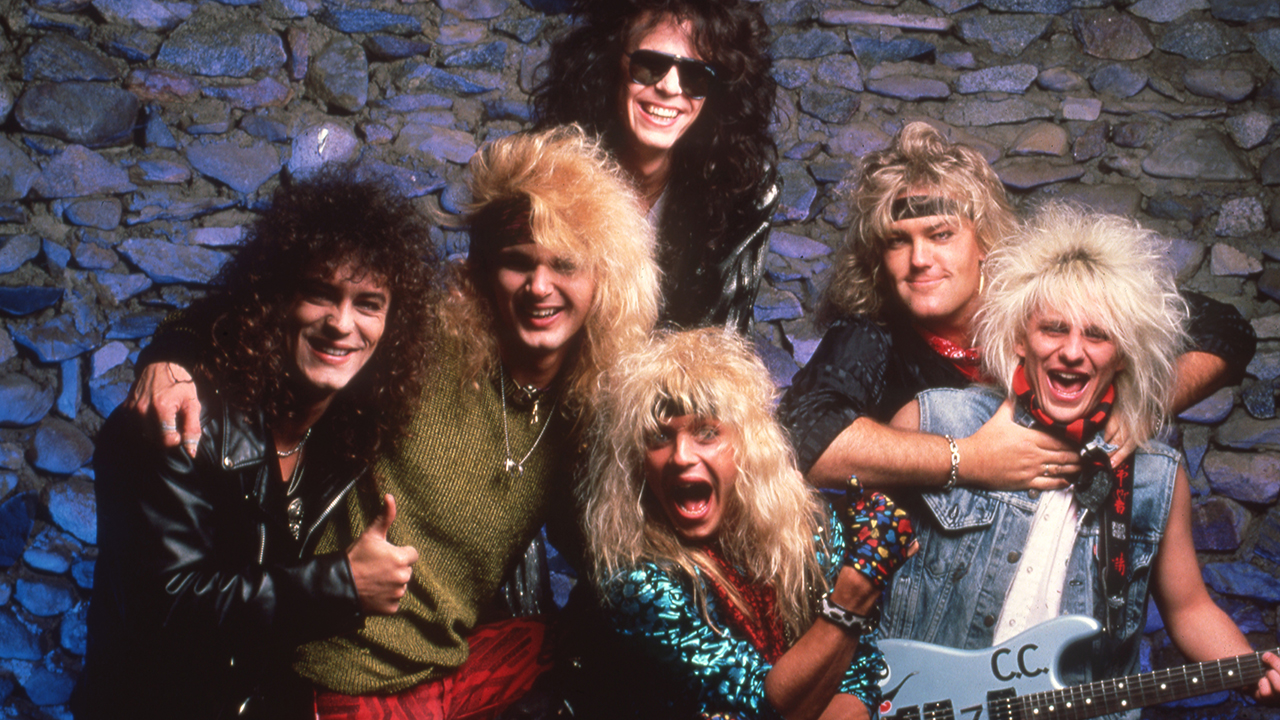
What do you get if you cross Van Halen with punk? Hair metal. In the early 80s, the influence of punk was everywhere. In the UK, bands like The Specials took punk’s attitude and energy and added it to ska, while the Stray Cats, The Cramps and The Meteors put punk into rockabilly.
In Los Angeles, meanwhile, Hollywood’s Sunset Strip was the birthplace of the phenomenon known as hair metal – pretty, tattooed boys playing down-an’-dirty music. This new breed of glam rockers took punk’s nihilistic ‘live fast, die young, leave a good-looking corpse’ credo, added a love of good-time classic rock, stirred in some Eddie Van Halen guitar pyrotechnics, and gave birth to the genre amid a fog of sex, drugs, swagger, sleaze… and hairspray – lots of hairspray.
It’s hard to believe now, but hair metal ruled the world of rock from about 1983 until the arrival of Nirvana’s Nevermind in 1991. Most famously, it produced Guns N’ Roses, and it also gave rise to bands like Mötley Crüe and Poison, and featured amazing guitarists such as Ratt’s Warren DeMartini and Dokken’s George Lynch. But beneath the surface glamour lurked a darker world.
Here we present some bite-sized postcards from the edge: hair metal as seen through the eyes of its heroes, to get the hair-raising story direct from the lipsticked mouths of the men and women who lived it.
Cast of characters
This piece includes insight and stories from:
Bobby Blotzer (Drummer, Ratt), Robbin Crosby (Guitarist, Ratt [1959-2002]), Warren DeMartini (Guitarist, Ratt), Amir Derakh (Guitarist, Rough Cutt), CC Deville (Guitarist, Poison), Taime Downe (Singer, Faster Pussycat), Janet Gardner (Singer/guitarist, Vixen), Lizzie Grey (Singer/guitarist, London), Tracii Guns (Guitarist, L.A. Guns), Ron Keel (Singer, Steeler and Keel), Tommy Lee (Drummer, Mötley Crüe), George Lynch (Guitarist, Dokken), Mick Mars (Guitarist, Mötley Crüe), Bret Michaels (Singer, Poison), Brent Muscat (Guitarist, Faster Pussycat), Stephen Pearcy (Singer, Ratt), Maxine Petrucci (Guitarist, Madam X), Steve Plunkett (Singer, Autograph), Desi Rexx (Singer, D’Molls), Axl Rose (Singer, Guns N’ Roses), Rikki Rockett (Bassist, Poison), David Lee Roth (Singer, Van Halen), Jack Russell (Singer, Great White), Nikki Sixx (Bassist, Mötley Crüe), Slash (Guitarist, Guns N’ Roses).

Tracii Guns: “At high school I was in bands that played a lot of Led Zeppelin, Black Sabbath and Van Halen, because they were just coming out. Randy Rhoads was around, and I didn’t want to play live unless I was in Ozzy’s band.
Sign up below to get the latest from Classic Rock, plus exclusive special offers, direct to your inbox!
“We didn’t have a singer for a long time, so we’d basically play [Zeppelin’s] Dazed And Confused for two hours. Real experimental stuff. That band was called Pyrrhus, which eventually turned into L.A. Guns. Slash was at the same school and he had a band called Titus Sloan – they did the same thing as us, cos they didn’t have a singer either.”
George Lynch: “I was in a group called The Boyz. Van Halen were at the top of the heap, Quiet Riot were probably number two, and then there was a band called A la Carte. They were a cross between ZZ Top and New York Dolls and used to come out in lingerie.”
Guns: “In Hollywood at that time, Randy Rhoads was with Quiet Riot, and Van Halen were still kind of fartin’ around town. Judas Priest came through the area and played The Starwood. Aerosmith came through the area once and played The Starwood, too, and that’s when we started getting serious. At about the same time bands like Ratt and Mötley Crüe and Quiet Riot were happening.”
Mick Mars: “Yeah, I could see the impact Mötley Crüe were having on other LA bands [both image and music-wise], but it didn’t really bother us. It’s kind of a back-handed compliment. A lot of bands like to take chances. There are a lot of one-song bands that come along, but that’s not what we’re about anyway. We’re not fly-by-nighters, we’re drunk-by-nighters.
Tommy Lee: “People see us as the godfathers of the big-hair scene, but we’re as much punk as anything else. I hope when you hear the new album – Girls, Girls, Girls – that’ll come across.”
David Lee Roth: “You know, part of the problem with these LA bands now [1987] is all the frontmen seem to be copying what I’ve done. Too many impersonators. They need to get some originality.”
Steve Plunkett: “We got our real big break because our drummer Keni Richards was a friend of David Lee Roth’s. So we got to open for Van Halen on the 1984 tour even though we were unsigned. Imagine what that does for a band! That’s the way so much of this business works – who you know.”
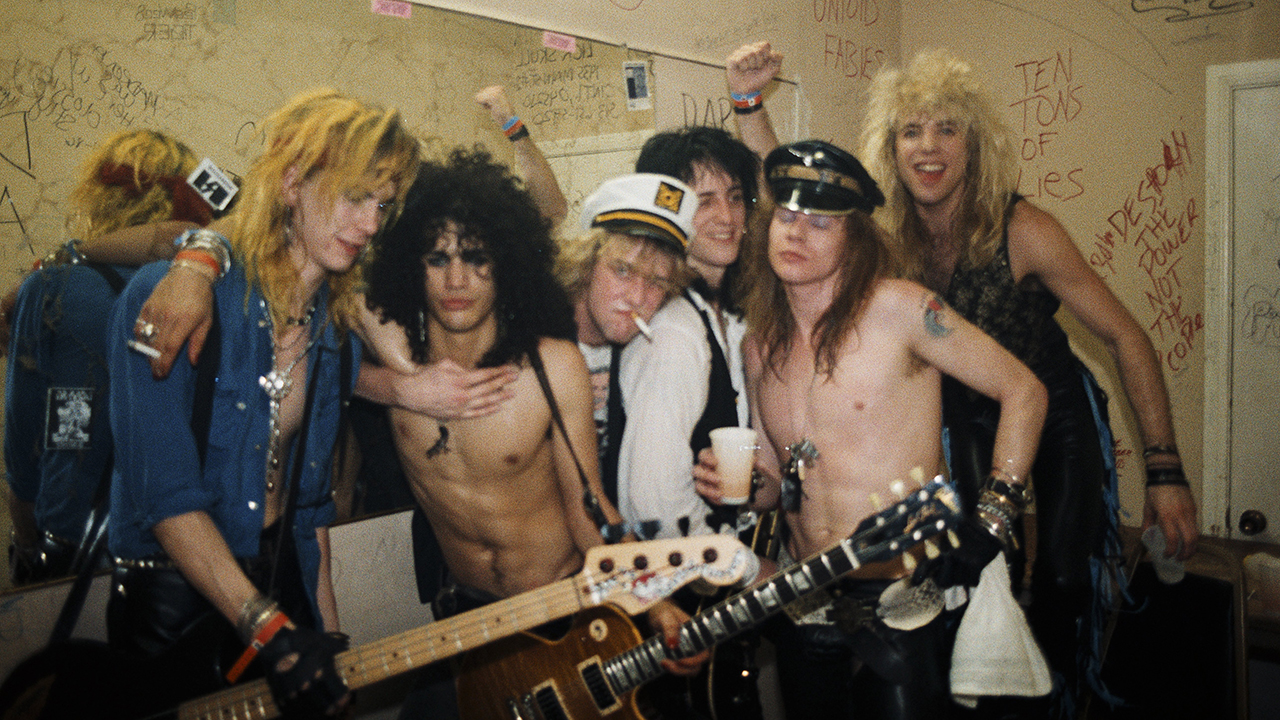
CC DeVille: “I don’t think there’s a guitar player in the last 10 years who hasn’t been influenced by Edward Van Halen. I thank God for him, because I think guitar was just about to expire in 1979 due to the DX-7s and the Casios [keyboards]. Then he gave birth to the dive-bomb and all that. I started out wanting to play like Edward, but unfortunately I came to the realisation rather quickly that I was going to have to seek that elsewhere.”
Lynch: “There was a guy called Terry Kilgore and he was amazing, the original Edward [Van Halen]. They went to school together, but I think Terry was the innovator, he started it. I used to go to his house all the time, and I think he had a little over Ed. He had a band called Reddi Killowatt, but he didn’t have the looks or the drive. I used to go to his apartment and jam for hours and he’d put me in the dust. Remember that sculptured dragon guitar Eddie used to pose with? That was Terry’s.
“Back then everybody was playing in a more bluesy style, because you didn’t have Edward or Yngwie to grow on and set a standard; the standards were old-school. I can’t really remember what I was playing like back then, but I change every few years. I listen to everyone and try to learn from everyone, but not sound like anyone. Someone like Yngwie who has become that technically proficient, to turn around and do something out of left-field or take it somewhere completely different, that’s hard.”
Mars: “I listen to quite a few guitar players, but I don’t want to copy any of their stuff because I don’t want people saying: ‘Where’d you get that from?’ I listen to Beck, Blackmore, Schenker, all those big boys.”
Bret Michaels: “We moved from Pennsylvania to LA to become rock stars – simple. Except that we worked hard on the streets to get noticed. We had the hairspray and make-up even when we were handing out flyers. If you don’t have a gimmick, you get lost in the crowd.”
Jack Russell: “How can we fit into the whole big hair scene? I’ve got a weave – and I’m not ashamed to say that. I’d like to think that our music stands on its own, but I’m aware enough to realise that we have to look cool in the videos and photos.”
Desi Rexx: “I know everyone says it, but in our case it’s true: we’re different.”
Lizzie Grey: “Everyone seems to have been in this band [London] – Nikki Sixx, Blackie Lawless, Slash, CC DeVille. They used London as a stepping stone. I gave them their chance, and where am I? Still struggling.”
Taime Downe: “When I moved to LA I was into Siouxsie And The Banshees and Bauhaus, as well as Alice Cooper. I wanted to combine it all in Faster Pussycat. But you know what the main thing is about this band? It’s fun. What’s the point of getting on stage and being miserable?”
Slash: “Me and the band used to come to this bar all the time. We always used to sit here in the corner, right where we are now, because it’s the best spot to get a blow job without anybody knowing.”
Axl Rose: “Every weekend, the biggest party in LA was down in our place. We’d have 500 people packed in an alley, and our old roadie was selling beers for a buck out of his trunk. We could get away with whatever we wanted, except when the cops came. If there was a problem with someone, we’d escort them out. By ‘escort’, I mean we’d drag ’em out by their hair down the alley, naked.”
Warren DeMartini: “I was 15 when I first picked up a guitar – a cheap $50 model. I played stuff like Train Kept A-Rollin’ and Bridge Of Sighs. Then I joined a band in San Diego called Enforcer. We wanted to work up an original set, but San Diego isn’t an original-music-type place. The closest I’d get to playing Top 40 stuff was old Scorpions songs. I think they got me to play something by The Pretenders, but I really tried not to play that type of music. Jake E Lee [Ozzy Osbourne guitarist] was from San Diego too, and when he got the job with Ozzy he recommended me for his band, Ratt.”
Maxine Petrucci: “Let’s face it, rock is about sex. And we give it to them.”
Robbin Crosby: “We’re a gang, and we’re rock’n’roll. I don’t think the image thing matters in the long run. We want a career that’s similar to Aerosmith – no trends, no hype. This is about songs, music… oh, and the groupies.”
Nikki Sixx: “We bite the fuck out of people who come on the bus with us. We bite the fuck out of each other, too. Tommy bites me and I bite him all the time. It’s crazy. We bite our audiences, too. All the time. We get paid in flesh.”
Amir Derakh: “My hobbies? I like to spank asses. And having sex in the shower. I love that shit.”
Crosby: “I live in dread of catching something on the road. The lifestyle I lead may mean I don’t make it to old age.”
Russell: “I’ve been in jail for all kinds of shit, but this one takes the fucking cake. They [the FBI] find an outstanding warrant for fishing without a licence! ‘Oh God, no! Not fishing without a licence!’ ‘Up against the wall, pull that trout out of your ass, buddy, we know you’ve got it in there!’
It’s great when you’re in jail: ‘What are you in for, man?’ ‘Murder. What you in for?’ ‘Fishing without a licence!’”
DeVille: “I definitely wanted to be a flashy guitar player, but I realised in the realms of Poison, being a lead guitar player and a songwriter would conflict. If you’re a guitar hero, you tend to write a song around an amazing solo. But when you’re a songwriter you need to have a good tune, not just come up with some great chord changes and put lyrics somewhere near the beginning and the end. I’m a songwriter first, so as much as I hate to say it, the guitar solo has to come second to the quality of the song. But then I thought: ‘Wait a minute. Can’t we play guitar well without it overshadowing everything? Isn’t there anyone who can play guitar for the sake of it and be appreciated for that?’
“Not that I’m actually doing it, but I’m trying. I thought I’d write songs – great songs – with a good solo spot that wasn’t too elaborate, not verse/chorus/verse/chorus of just soloing. Just get in, shoot my load and get out.”
Lynch: “Speed is essential for any 80s guitar player, but nowadays you see it being developed as a tool – it’s not just speed for speed’s sake, which is how it was when I grew up. Alvin Lee [Ten Years After] was the fastest guitar player and you had to play like that. But once it gets to that point, I think people start to get back to feeling, dynamics and stuff like that. People like Vinnie Moore, even though they’re flashy and have tons of speed, I think they lack that aspect to their playing.”
Guns: “The songs are real important, whereas Vai and Satriani are great guitarists without songs. The best guitar playing Vai ever did was on David Lee Roth’s first album [Eat ’Em And Smile]. For me, the song comes first – when all is said and done I’m gonna play great over any song.”
DeMartini: “There’s pressure being a guitar hero. It can be terrifying. Because I didn’t apply for the job. I was never into the competition part of it, but some people are, so I’m in a situation I never expected or wanted to be in. It’s not that I don’t want to be admired, but I don’t want to get to the point where it isn’t a creative thing. I guess what I want is to be at one with the guitar.”
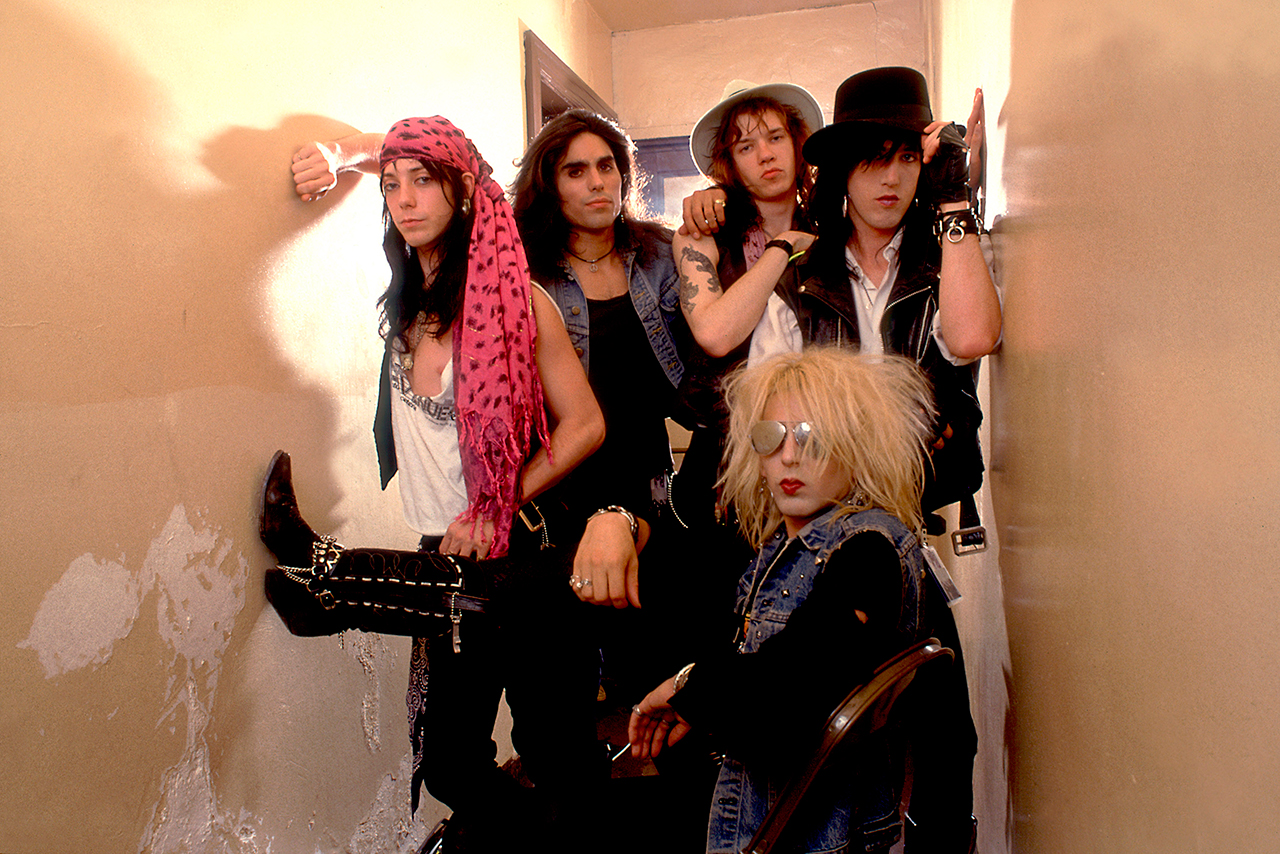
DeVille: “I’m not gonna lie to ya, there’s no guitar player in the world who doesn’t want to be known as a guitar hero. That’s bullshit.”
DeMartini: “For me, the hardest thing to do is play a fast song, because it’s so easy to just go on and on. I always felt I didn’t want to play everything I knew, because then you’ve got nothing left. It’s like you’re playing your whole hand right there. Nowadays, you hear guys with such incredible dexterity and technique, and they play really clean, but within the first half of a song you pretty much hear their whole catalogue. I can appreciate the technique, but as far as listening to a whole record, I really need something spaced out a little more.”
DeVille: “I’m a textured guitar player. Picking has become state-of-the art lately between Yngwie, Edward and Steve Vai. But where else is it going? Sometimes less is more.”
Mars: “I’ll work out a lot of my solos in advance, although there are some that are just whatever comes off. Thing is, when you do it live you have to play it the same and you can’t remember what you were doing. When I think back, I really like the solo on Red Hot, and the Too Young To Fall In Love guitar solo is pretty cool. If I could go back and re-do one solo, it would be the one for Ten Seconds ’Til Love. I think I could do it better now.”
Lynch: “The ESP Kamikaze Tiger guitar I had at the time, I sold it to Warren [DeMartini], then stole it back from him, then sold it to some hippie in Topanga Canyon so Warren could never get his hands on it again.
“Not that there’s any competition. I think Warren has his style, but I never thought it was that derivative [of mine]. I think he gets a lot of his stuff from players like Eddie. But we get along great. He doesn’t have that driving ambition like Yngwie, that cut-throat competitive edge.
“It’s become so much more competitive, because so many players have raised the standards, what with the GIT [Guitar Institute of Technology, now Musician’s Institute] and Yngwie, even up-and-coming 18-year-olds. I come from the other side – someone who’s over 30 and grew up on BB King. It’s hard to stay contemporary. You need to have both elements, and I wish I had more of the speed and accuracy. But the feeling will always be there, it’s not something you have to exercise as much. I’m an ear player: I don’t know a fucking note, I can’t read a fucking note, I struggle with guitar notation, I try to learn the chords to Jump, you know?”
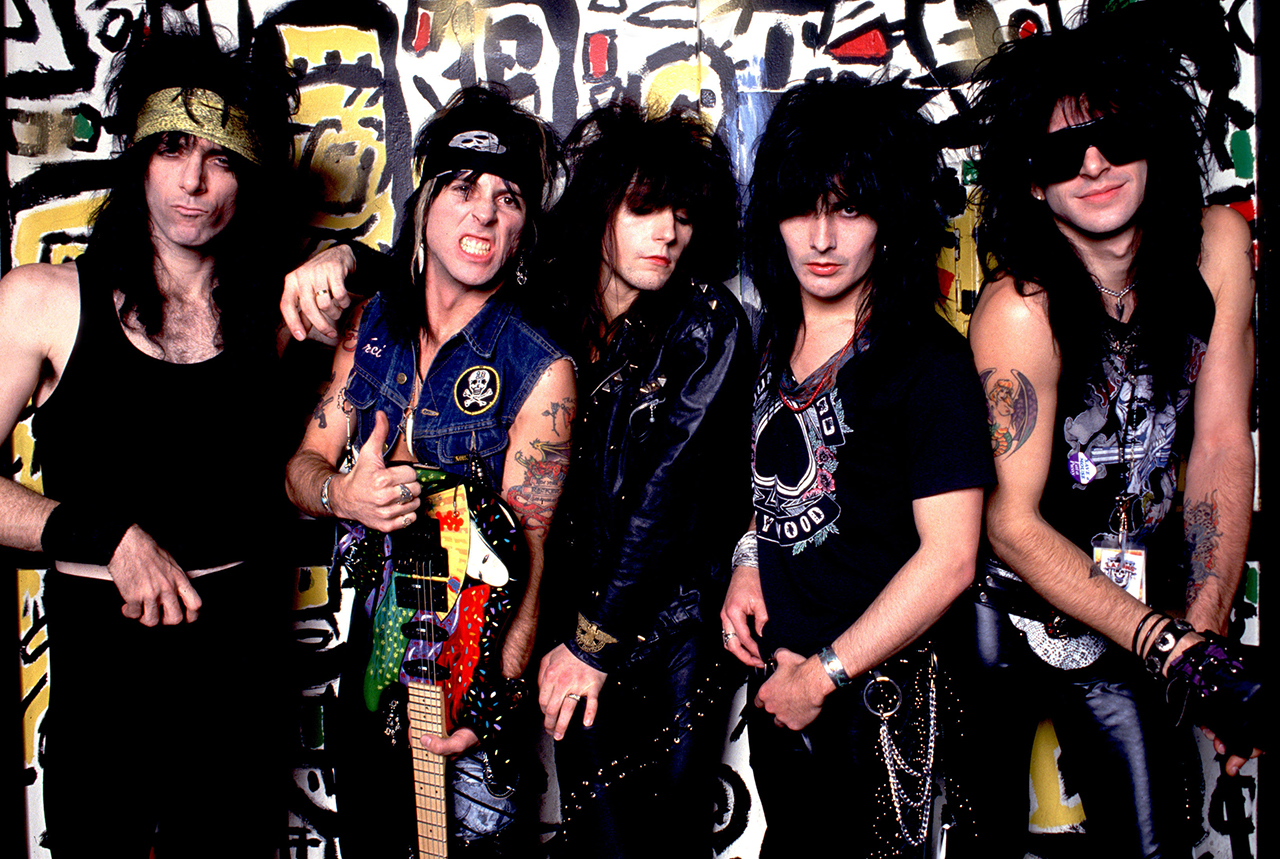
Ron Keel: “The level of musicianship on the LA metal scene is very competitive. There are some amazing guitarists, drummers, and bassists, and I thought that’s what I wanted with Steeler. So I got in Yngwie Malmsteen on guitar. I found out the hard way that the best musicians don’t always make the best bandmates, and there’s no substitute for chemistry and camaraderie, which I’ve now got with Keel.”
Brent Muscat: “We get guys thinking all the time that we’re gay because of the make-up thing. Fine. They soon realise we’re not when we walk off with their girlfriends.”
Mars: “You can’t judge a book by its cover – it’s not really fair. But as our career goes on we’re doing more guitar-oriented interviews, which makes us feel better. In fact me and Nikki [Sixx, bassist] are going to be doing stuff on the next album, like different time signatures, which I think will make a lot of people sit up and take notice. We’re not writing for musicians, we want to have a good time, we want a good song.”
Crosby: “I came off the road after our first headlining tour of America, and I just couldn’t adjust to life back home. So I booked a villa at the Sunset Marquis Hotel in Hollywood, rather than buying a house. It may sound daft, but I feel better knowing I can pick up the phone and dial room service. Right now I can’t face doing my own shopping.”
Slash: “I come from a background that means I’m never phased by stars. My mum made stage clothes, my dad designed album sleeves. I’m used to hanging out with people like Joni Mitchell; I sat on her knee when I was a kid.”
Rose: “Now we’re famous we get to stay in some very upmarket hotels. But we look like we don’t belong. I’ve had security guards try to stop me, asking whether I was a guest at the hotel. No, I’m a fucking paying customer!”
DeVille: “Everyone would look at the image of the band and think we were posers. They wouldn’t even listen to the shit, they’d just see the make-up and be turned off. Because if you look at the bands coming out now, that’s the case. They’re wearing the make-up and they really can’t play; it really is all about the image instead of the musician. But I think my playing is kind of likeable, if not startling.”
Slash: “If it helps Axl to deal with things, then what’s the problem with having a mystic on the road? Or his own floor in hotels? It doesn’t bother me. I’ll do whatever it takes to keep this band together.”
Crosby: “We tell people that Stephen needs his own dressing room because he likes to be on his own before shows. In reality… what the fuck? It does nothing for band unity. Maybe we’ve become victims of our own excess.”
Rikki Rockett: “You know you’ve made it when you can walk into a mud wrestling place like the Tropicana in LA, and the bouncers open the door for you. If I want, then I can get into the pit with the girls – and nobody stops me!”
Bobby Blotzer: “I haven’t become an overnight success, I’ve worked hard for my yacht. I even played with Don Dokken.”
Michaels: “You know what’s weird? Walking into clubs and knowing all the girls wanna be with you, and the guys just wanna punch you out.”
Crosby: “We come to England to play this festival [Monsters Of Rock, 1985], and our American support band [Bon Jovi] are above us on the bill? And there’s this bunch of old guys we’ve never heard of [Magnum] going on after us? Do you guys really get what’s going on?”
DeVille: “Why do you think our first album, Look What The Cat Dragged In, sold? It had pop hooks. And we had those cool videos. We’re not virtuoso musicians, but then that’s not what this scene’s about.”
Lynch: “Personally, I most enjoy playing the harder, moodier stuff, tracks with bigger grooves. But we’re more accepted for the commercial stuff, the ballads. So we try to please ourselves as well as doing what we have to, and sometimes it’s a compromise that doesn’t always work. We’re kind of stuck in an uncomfortable position.
“My favourite bands are like Iron Maiden, yet people who are into our music hate them. So if we tried to do something like them, the record company would probably flip. Although they play music just for music’s sake, whether or not they’re the best players it doesn’t matter. They’re good players, and play well together as a band, like Metallica or Queensrÿche.
“I have no desire to do a solo album. I wouldn’t particularly want to listen to a Steve Morse or Yngwie album all the way through, just to listen to the guitar player. I like songs, good vocals, production values, and myself; I don’t think I have enough to offer.”
DeVille: “Rock’n’roll is a very raw and original form of music, and it’s getting so technical. It was invented for people who couldn’t play regular music. I really feel that.”
Stephen Pearcy: “Look at the Ratt album credits. Believe it or not, someone had to write that shit, and I’m proud of every note. Yes, that was me a lot of the time. Robbin [Crosby, guitar] was great at melodies, as was Juan [Croucier, bass]. Juan would bring in whole song ideas, which made putting in my two cents easier.”
Michaels: “Everyone thought we’d disappear after one album. But we haven’t. We’re bigger than ever. You know why? Because we know our limitations. We play simple rock’n’roll, for the masses, not huge epics like Yes. Is that so wrong? We entertain.”
Slash: “When we recorded Appetite For Destruction we were just happy to have it in the shops – that’s it. Now we’ve just made it into the Billboard Top 100 – wow! If we split up now, then we’ve over-achieved.”
Sixx: “I could see the writing on the wall for the whole ‘big hair’ thing when Nirvana came on the scene. I remember being on MTV and holding up a copy of the Nevermind album before it was released, and saying: ‘This is the future.’”
Malcolm Dome had an illustrious and celebrated career which stretched back to working for Record Mirror magazine in the late 70s and Metal Fury in the early 80s before joining Kerrang! at its launch in 1981. His first book, Encyclopedia Metallica, published in 1981, may have been the inspiration for the name of a certain band formed that same year. Dome is also credited with inventing the term "thrash metal" while writing about the Anthrax song Metal Thrashing Mad in 1984. With the launch of Classic Rock magazine in 1998 he became involved with that title, sister magazine Metal Hammer, and was a contributor to Prog magazine since its inception in 2009. He died in 2021.

